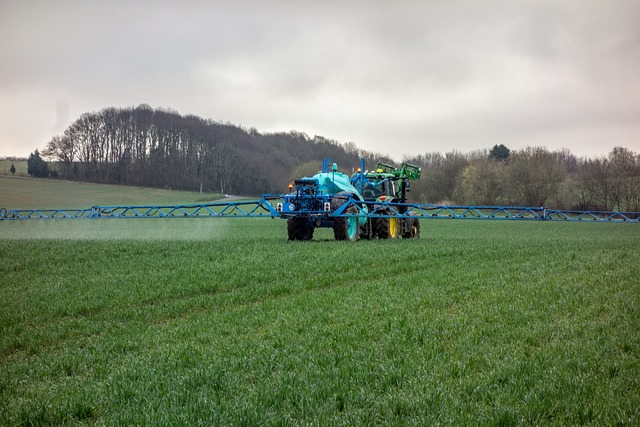
European Pesticide Regulations Represent a Significant Part of the European Union (EU) Regulatory Framework Aimed at Ensuring Food Safety, Environmental Protection and Human Health.
In recent years, the EU has made significant efforts to strengthen and improve regulations regarding the use of pesticides, taking into account scientific developments, environmental concerns and the need to ensure consumer safety. One of the key initiatives was the revision of Regulation (EC) No. 1107/2009 relating to the placing on the market of plant protection products. This revision, which entered into force on 1 June 2023, introduced several changes and new criteria aimed at strengthening the safety of pesticides used in European agriculture.
Firstly, the new legislation has introduced a greater focus on the concept of sustainability and Member States are now required to consider environmental, economic and social aspects when authorizing the use of pesticides. This reflects a growing awareness of the interconnections between agriculture, the environment and local communities and the aim remains to promote more sustainable agricultural practices and reduce the negative impact of pesticides on the ecosystem. Another important innovation concerns the approach to risk assessment and the new European legislation, in fact, has introduced more rigorous criteria for evaluating the effect of pesticides on human and animal health and on the environment, including a more detailed evaluation of the effects on long term, as well as greater attention to the cumulative effects of different chemicals.
A crucial aspect of the new rules concerns the reduction of the use of dangerous chemicals. Member States are encouraged to promote the use of non-chemical alternatives and to limit the use of pesticides considered to be high risk, thus aligning with the overall EU objective of reducing exposure to harmful chemicals and promoting more sustainable and environmentally friendly agricultural practices. Transparency and access to information are also key pillars of the new rules. Member States are required to provide the public with detailed information on authorized pesticides, including data on their chemical composition, effects on human health and the environment, as well as the risk management measures taken. This approach aims to actively involve citizens in overseeing the decision-making process and to ensure greater accountability on the part of the actors involved in the food production chain.
Another innovation introduced is the obligation for Member States to develop national action plans to reduce the use and impact of pesticides, including specific measures to promote the transition towards more sustainable agricultural practices and the reduction of herbicides considered high risk. This national strategy aims to create a more coordinated and targeted approach to pesticide management, taking into account the climatic, agricultural and environmental specificities of each member country. At the same time, European legislation on pesticides has moved towards greater harmonization of rules between member states with the aim of guaranteeing uniform safety standards throughout the European Union, thus reducing differences in agricultural practices and guaranteeing fair protection of human and environmental health. This harmonized approach will also help facilitate the free movement of agricultural products within the European single market by increasing their commercial value.
European legislation has tightened controls on food imports from third countries and those that do not comply with European pesticide standards could be subject to restrictions or bans. This measure is aimed at ensuring that all food products offered on the European market meet the same high safety standards. The new European regulations on pesticides represent a significant step towards a more sustainable and safer management of chemical substances used in agriculture. Through a greater focus on sustainability, a more in-depth risk assessment, the promotion of non-chemical alternatives, transparency and harmonization of rules, the EU is committed to ensuring that European agriculture develops responsibly, respecting the environment, human health and biological diversity. This regulatory evolution represents an important contribution to building a more sustainable and resilient agricultural future, especially for a nation with a strong agricultural economy like Italy.
Alessandro Fiorentino



 Subscribe
Subscribe